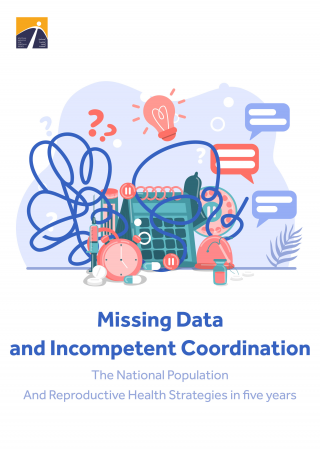South Cairo Criminal court issued yesterday its decision on Patrick’s hearing session, renewing his remand detention for an additional 45 day pending the investigation in the case 7245/2019. The hearing was held yesterday in Patrick’s presence and the presence of his lawyers from EIPR. Patrick has already spent more than 9 months in remand detention.
Programs: Civil Liberties
Solidarity action with the Egyptian Initiative for Personal Rights (EIPR) We urge the Egyptian authorities to immediately and unconditionally release Mohammed Basheer, Karim Ennarah and Gasser Abdel-Razek and the dismissal of the case against them.
The recent developments also come as a direct response to our activities in the field of international advocacy, and in particular our meetings with a number of diplomatic missions, the most recent of which was a meeting held at EIPR’s headquarters on November 3rd with 13 ambassadors and accredited diplomats, who discussed ways to improve human rights conditions in Egypt.
In an unprecedented escalation for the Egyptian Initiative for Personal Rights, a security force arrested Mohamed Bashseer, the Administrative Manager at EIPR from his home after midnight on Sunday the 15th and detained him for more than 12 hours
Everyone has the right to life-saving interventions during or outside of crises.[ii] And yet, women and girls’ rights to bodily autonomy and safe abortion have been some of the first rights to be conveniently sacrificed under the guise of prioritizing COVID, as if health was a zero-sum game. That includes free, safe and legal abortion and comprehensive abortion and post-abortion care, without which women, girls and gender-non-conforming persons are forced to seek unsafe clandestine abortions or to carry unwanted pregnancies to term, in complete violation of our rights.
In particular, the paper reviews three problems surrounding the implementation of the two strategies, namely, first, the absence of data that feeds the indicators previously adopted in the two strategies that are indispensable for their evaluation, and their lack of availability in the few cases in which data are collected. And secondly, lack of commitment to evaluation and review which leads to the difficulty of social accountability. And finally, in the absence of a clear overall vision of how to implement reproductive health policies, as evidenced by the multiplicity of entities responsible for the issue, lack of coordination between them, and the instability of the regulatory frameworks that govern the work of the National Population Council. The paper concludes with a number of recommendations aimed at addressing the three problems and avoiding them in any future planning.
EIPR hopes that the prosecution’s decision not to proceed with the referral of Menna Abdel Aziz to trial is a precedent that will be generalized to the rest of sexual violence cases, through the prosecution’s use of its inherent right to suspend investigations or counter-reports that the victim of sexual violence may face once they report the incidents of abuse.
EIPR also warns of the danger of using Article 27 of the Law to Combat Electronic Crimes issued in 2018 to target the same spectrum of non-traditional ideas and trends, under the pretext of “misuse of social media.” Last June as well.
EIPR had previously and repeatedly warned that the precedent of accusations being brought against a victim and survivor of rape and kidnapping sends a clear message to women and girls that reporting sexual assaults they are subjected to, may end up in them being charged as accused and lead them to prison, hindering any community efforts seeking to support women and girls in their quest to recover from the aftermath of sexual violence crimes that they may be exposed to.
The Egyptian Initiative for Personal Rights (EIPR) condemns the verdict passed in absentia by the Fifth Circuit of the Criminal Court (terrorism felonies) with 15 years’ imprisonment for Bahey El Din Hassan, founder of Cairo Institute for Human Rights Studies (CIHRS), and one of the pioneers of Egyptian human rights work throughout its history.




